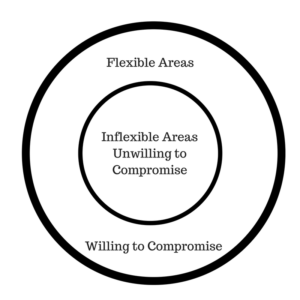How I Almost Missed Out On My “Good Guy” and Tips So You Don’t Miss Yours!
I’m just going to go right out and say it, dating sucks, especially now with all the apps and the swiping and the paradox of choice. However, I don’t think it’s the modern technology, although it doesn’t help, that makes dating suck. It’s more scientific than that. You’ve heard that saying ‘dating is a number game,’ right? It certainly is!
Let’s talk about attachment styles for a minute. Neither one is good or bad (although it may seem that way). Odds are you either will recognize these characteristics in yourself or someone else. The three main attachment styles are as follows:
- Anxious
- Wants a lot of closeness in relationships
- Has a lot of insecurities about rejection
- Sensitive to small cues and fear the relationship is in jeopardy and that he/she must work to keep you interested
- Struggles expressing what is bothering him/her
- Secure
- Reliable and constant
- Naturally expresses feelings for you
- Not afraid of commitment or dependency
- Communicates relationship issues well
- Avoidant
- Sends mixed signals and doesn’t make intension clear
- Values independence a great deal
- Emphasizes boundaries in relationship
- Has difficulty talking about what’s going on between the two of you
Odds are, you have most likely dated people with an anxious or avoidant attachment style. I know I have certainly dated my share! In fact, I dated so many people with this attachment style, I almost blew my chances when someone with a secure attachment style (my husband–believe it or not) came along!
Here’s my story, hopefully you can benefit from hearing it and the lessons I’ve learned from it. Keep in mind, I would consider myself to have an anxious attachment style (at least at this time!) and my husband having a secure attachment style. I will include my inner dialogue and ways my husband calmed my “activated attachment system” as well as some
See if you can pick up the cues that his attachment style is secure.
Back in the day, I was a big fan of online dating. It was easier than meeting people in person and I liked the screening process. When my now husband messaged me on a site, I at first did not see it, but then he messaged a few days later and I quickly scanned his profile before responding. We didn’t seem to have much in common, but decided to respond to him anyway. We chatted online for an hour or so then he quickly asked for my phone number that same night.
“My phone number?! I don’t even know him, he’s moving very fast!”
“What if we talk and he gets bored because we’ve already talked for a while already?”
I gave him my phone number anyway and we talked for a few more hours that night. He said he had a great time talking with me and then asked me on a date for a few days from now.
“I don’t know about this, I usually like to talk to people more before I meet them.”
“He’s very direct, I don’t know how I feel about that.”
“I bet once he meets me he won’t want to see me again. I don’t know if I am good enough.”
We met and had a wonderful date where we talked and seemed to really hit it off. The next morning, he called and left me a voicemail saying that he had a wonderful time and he wanted to know when I was available next.
“This is unreal. I meet a nice guy and he tells me right away that he had a great time and wants to make plans with me again right away!”
“What’s his angle here, I’ve never met someone with such clear intensions.”
I messaged him saying I had a great time too and that I was available that next weekend. We called and texted throughout the week, getting to know each other further. He was available to talk during the day (work permitting) and let me complain about my crummy job at the time.
He said he knows he just met me once, but he wants to see where this goes and is planning on canceling any other dates he had lined up for the future.
“I can’t believe this. No guy has ever been this direct and able to express his feelings so clearly.”
“Do I have to do the same? I am not sure if I like him as much as he likes me…” (no, I did not have to do the same)
“He’s taking a big risk on me, I don’t know if I am worth the risk.”
A close friend warned me about “guys like him.”
Can you pick up on his secure attachment style? How about my anxious one and what I was used to dating in the past (anxious and avoidant men)? Had I listened to my friends and my rather calm but confused attachment system, I may have missed out on someone really special.
A few tips on how to not let a secure person get away:
- Ask yourself “is this person able and willing to meet my needs?”
- Do you really like a few texts throughout the day? Are they able to meet that need for you?
- Do you need to vent about your work? Do they listen to you and not shut you down?
- How do they react to you expressing your feelings (within reason) for them.
- Do they shy away from commitment or play games with their feelings?
- How do they react when you express displeasure with something they did or said?
- When you effectively communicate that you were disappointed, how open are they to your feedback.
- Do you know where you stand with this person? Is there very little “drama”?
- We’ve conditioned ourselves to be used to and welcome the drama, but people with secure attachment styles are upfront with their feelings and can at times seem boring due to the lack of drama.
Stay tuned for more attachment style insights to help you improve your dating life.







 “Friendship
“Friendship










